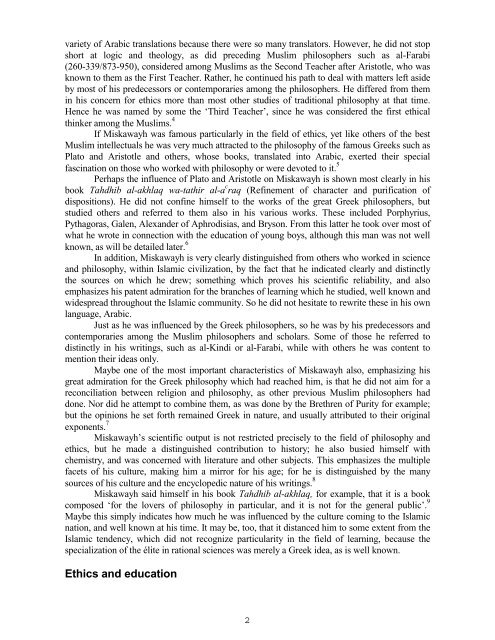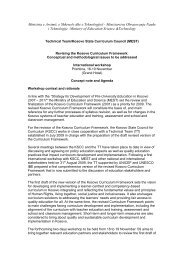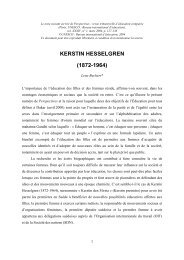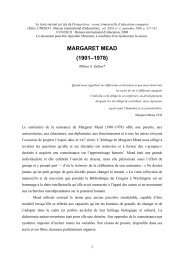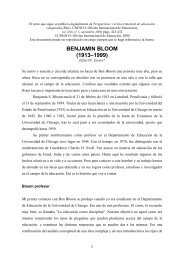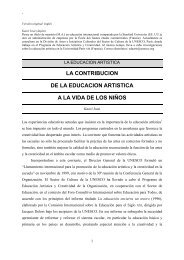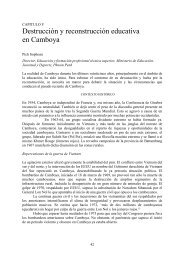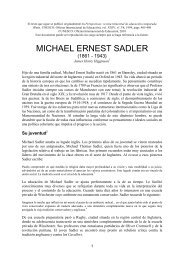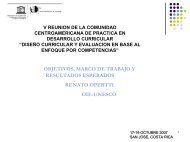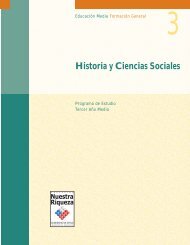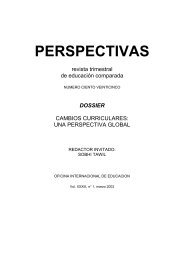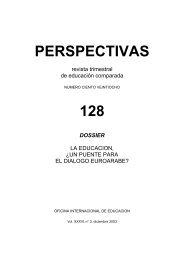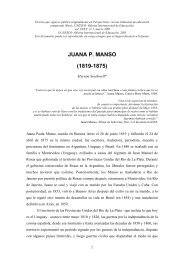MISKAWAYH - International Bureau of Education - Unesco
MISKAWAYH - International Bureau of Education - Unesco
MISKAWAYH - International Bureau of Education - Unesco
Create successful ePaper yourself
Turn your PDF publications into a flip-book with our unique Google optimized e-Paper software.
variety <strong>of</strong> Arabic translations because there were so many translators. However, he did not stop<br />
short at logic and theology, as did preceding Muslim philosophers such as al-Farabi<br />
(260-339/873-950), considered among Muslims as the Second Teacher after Aristotle, who was<br />
known to them as the First Teacher. Rather, he continued his path to deal with matters left aside<br />
by most <strong>of</strong> his predecessors or contemporaries among the philosophers. He differed from them<br />
in his concern for ethics more than most other studies <strong>of</strong> traditional philosophy at that time.<br />
Hence he was named by some the ‘Third Teacher’, since he was considered the first ethical<br />
thinker among the Muslims. 4<br />
If Miskawayh was famous particularly in the field <strong>of</strong> ethics, yet like others <strong>of</strong> the best<br />
Muslim intellectuals he was very much attracted to the philosophy <strong>of</strong> the famous Greeks such as<br />
Plato and Aristotle and others, whose books, translated into Arabic, exerted their special<br />
fascination on those who worked with philosophy or were devoted to it. 5<br />
Perhaps the influence <strong>of</strong> Plato and Aristotle on Miskawayh is shown most clearly in his<br />
book Tahdhib al-akhlaq wa-tathir al-a c raq (Refinement <strong>of</strong> character and purification <strong>of</strong><br />
dispositions). He did not confine himself to the works <strong>of</strong> the great Greek philosophers, but<br />
studied others and referred to them also in his various works. These included Porphyrius,<br />
Pythagoras, Galen, Alexander <strong>of</strong> Aphrodisias, and Bryson. From this latter he took over most <strong>of</strong><br />
what he wrote in connection with the education <strong>of</strong> young boys, although this man was not well<br />
known, as will be detailed later. 6<br />
In addition, Miskawayh is very clearly distinguished from others who worked in science<br />
and philosophy, within Islamic civilization, by the fact that he indicated clearly and distinctly<br />
the sources on which he drew; something which proves his scientific reliability, and also<br />
emphasizes his patent admiration for the branches <strong>of</strong> learning which he studied, well known and<br />
widespread throughout the Islamic community. So he did not hesitate to rewrite these in his own<br />
language, Arabic.<br />
Just as he was influenced by the Greek philosophers, so he was by his predecessors and<br />
contemporaries among the Muslim philosophers and scholars. Some <strong>of</strong> those he referred to<br />
distinctly in his writings, such as al-Kindi or al-Farabi, while with others he was content to<br />
mention their ideas only.<br />
Maybe one <strong>of</strong> the most important characteristics <strong>of</strong> Miskawayh also, emphasizing his<br />
great admiration for the Greek philosophy which had reached him, is that he did not aim for a<br />
reconciliation between religion and philosophy, as other previous Muslim philosophers had<br />
done. Nor did he attempt to combine them, as was done by the Brethren <strong>of</strong> Purity for example;<br />
but the opinions he set forth remained Greek in nature, and usually attributed to their original<br />
exponents. 7<br />
Miskawayh’s scientific output is not restricted precisely to the field <strong>of</strong> philosophy and<br />
ethics, but he made a distinguished contribution to history; he also busied himself with<br />
chemistry, and was concerned with literature and other subjects. This emphasizes the multiple<br />
facets <strong>of</strong> his culture, making him a mirror for his age; for he is distinguished by the many<br />
sources <strong>of</strong> his culture and the encyclopedic nature <strong>of</strong> his writings. 8<br />
Miskawayh said himself in his book Tahdhib al-akhlaq, for example, that it is a book<br />
composed ‘for the lovers <strong>of</strong> philosophy in particular, and it is not for the general public’. 9<br />
Maybe this simply indicates how much he was influenced by the culture coming to the Islamic<br />
nation, and well known at his time. It may be, too, that it distanced him to some extent from the<br />
Islamic tendency, which did not recognize particularity in the field <strong>of</strong> learning, because the<br />
specialization <strong>of</strong> the élite in rational sciences was merely a Greek idea, as is well known.<br />
Ethics and education<br />
2


